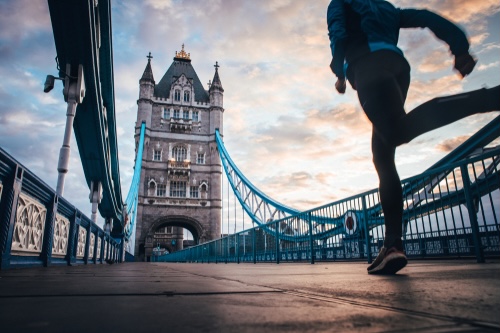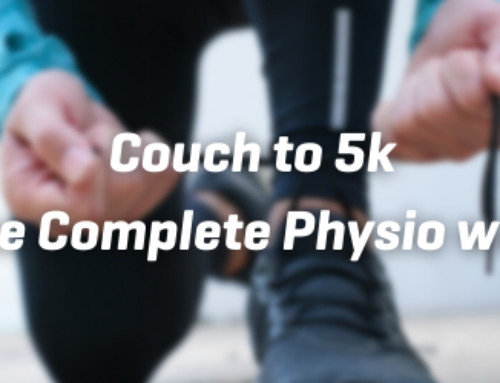So, it’s crunch time!
There is around one week to go before the marathon, so here are Complete Physio’s top five tips to avoid a marathon disaster.
Tip number one: Nothing new
If your training has been going smoothly, it is essential that in the week before the marathon you don’t alter your current regime.
Do not:
- wear any new running trainers
- start wearing a new pair of running socks
- use hydration drinks that you were not using before
- change your diet
- Some people are tempted to tinker with various aspect of their training, but it is important to stick to what you know and what has been working well.
Tip number two: Reduce your training
Don’t do too much training the week before the marathon. It is important to continue tapering your training. Tapering is the short-term reduction in training load before competition, to enhance performance (Gibala,1994).
Aims of Tapering:
- Reduced fatigue without compromising fitness
- Maintain training intensity
- Reduce training volume by 60–90%
- Maintain training frequency at >80%
- Taper between 4 and 28 days (Must be individualised & depends on the event)
- Expect performance improvements of around 3% (range 0.5–6.0%)
(Mujika and Padilla, 2003)
Stick to your training program. You are not going to get any physiological benefits in the last week, you need to feel “fresh”.
Tip number three: Sleep
It is important in the week before the marathon to maintain your “regular” sleep routine.

According to the American Academy of Sleep Medicine (2015), adults require between 7-9 hours of sleep for optimal performance and health.
Bird (2013) further suggested that athletes may require more sleep to allow for adequate recovery and adaptation between bouts of exercise, perhaps requiring closer to 9-10 hours.
Additionally, Watson (2017) stated poor sleep may increase the risk of injury and illness, reducing training availability and undermining overall health.
In this last week, try to sleep as normally as possible. If you typically go to bed at 10pm, go to bed at 10pm!
If you are struggling to sleep because you’re anxious, try and stay off your phone and computer for a couple of hours before you go to bed. Also, you could try having a bath, 30 minutes before you normally go to sleep, to try and relax.
If you are a little bit nervous the night before the marathon, don’t panic, it is quite normal.
Tip number four: Check out the course
Familiarize yourself with the course, as much as you can. If you live in London, you can possibly walk or cycle parts of the course you are unfamiliar with. If you don’t live in London, maybe examine the course using Google Earth or something similar, to help familiarize yourself with parts of the course.
Finally, there are many running forums/groups that will help you “learn” about the challenges of the marathon course and help reduce any anxiety.
Tip number five: Hydration
It’s essential to drink enough water the week before to ensure that your body is recovering and getting ready for the race.
Montain (2008) stated it is broadly accepted that fluid replacement is an important strategy for sustaining exercise performance.
The basis for encouraging drinking is that dehydration in excess of 2-3% of body mass (1.5-2 litres of water for a 70 kg individual) impairs aerobic exercise performance.
However, Montain (2008) additionally highlighted that too much hydration can produce adverse consequences.

The International Marathon Medical Directors Association (2006) offered practical recommendations for hydration when training for and running a marathon.
They concluded that drinking “to thirst” is the body’s fluid calculator and in most cases will protect athletes from the hazards of both over and under drinking by providing real-time feedback.
They advised athletes to understand their individual fluid needs but always defer to cues to increase fluid intake (thirst) or decrease fluid intake (increased urination, bloating) while running.
A simple test is to just check the colour of your urine, every time you go to the toilet.
It should be a nice light yellow. If it’s too dark, drink a bit more. Conversely, if you find it’s too clear and you end up going to the toilet all the time, then maybe just lay off a little bit.
Hopefully if you follow these simple but effective tips, it will help you successfully complete the marathon. Good luck!!
For more information or to book a physiotherapy appointment, please call 020 7482 3875 or email info@complete-physio.co.uk.
References:
Don’t let pain hold you back, book now!




